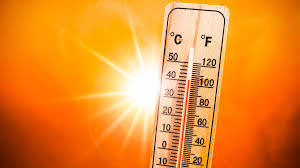Islamabad: Pakistan Prime Minister Imran Khan has urged citizens to wear face masks in public to avoid a spike in coronavirus cases, saying there were concerns that the “onset of winter” could result in a second wave.
“Compared to some other states, Allah has been kind to us in Pakistan and spared us worst effects of COVID-19. There is a fear onset of winter could result in second wave. I urge everyone to wear face masks in public to avoid a spike. All offices and educational institutions must ensure masks are worn,” he said in a tweet Sunday.
Compared to some other states, Allah has been kind to us in Pak & spared us worst effects of COVID-19. There is a fear onset of winter could result in 2nd wave. I urge everyone to wear face masks in public to avoid a spike. All offices & ed institutions must ensure masks are worn
— Imran Khan (@ImranKhanPTI) October 4, 2020
Pakistan reported 632 new cases Sunday, taking the country’s total infection tally to 314,616, reports The Express Tribune.
Six more deaths were also recorded in the country, which increased the total fatalities to 6,513.
Around 375 patients also recovered from the virus, taking the tally for recovered patients to 298,968.
On October 3, the national body leading the country’s coronavirus response also asked all provinces and federating units to launch a crackdown on restaurants and wedding halls violating standard operative procedures (SOPs) framed to curb the spread of COVID-19 in the wake of a fresh surge in infections, particularly in Karachi.
The Pakistan Medical Association has also issued a fresh warning over the escalating COVID-19 cases in the country, saying that country might be headed for a second wave of the disease.
In a statement, the doctors’ representative body warned that countries currently experiencing a second wave were facing a more severe form of the disease.
It expressed concerns over the possibility of a similar situation in Pakistan.
The PMA noted that people had stopped following COVID-19 SOPs in Sindh and cautioned that the situation could grow worse if immediate steps were not taken to address the problem.






































